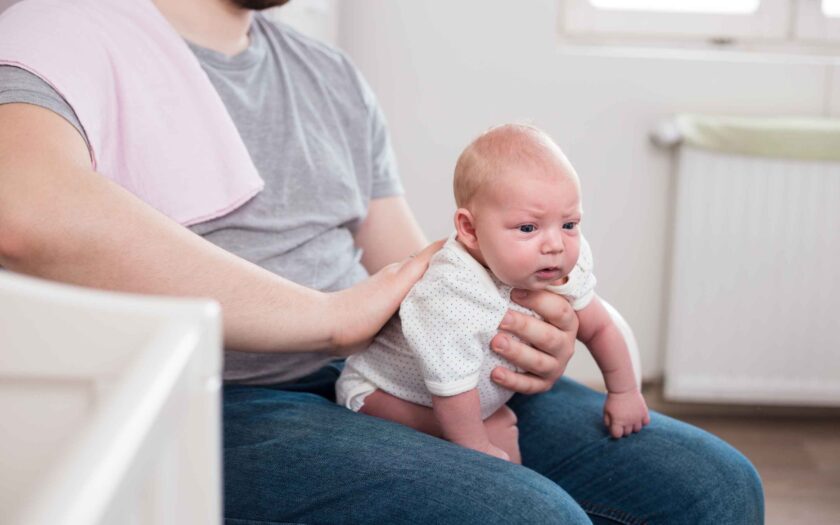Hiccups, also known as hiccoughs, are a common occurrence in both babies and adults. They are caused by involuntary contractions of the diaphragm, a thin muscle located between the chest and abdomen, which leads to a sudden closure of the vocal cords.
The diaphragm plays a crucial role in breathing, contracting and relaxing to facilitate the intake and expulsion of air from the lungs. When it contracts involuntarily, it can cause a quick intake of breath that closes the vocal cords abruptly, resulting in the characteristic sound of a hiccup. Hiccups in babies are generally harmless and often resolve on their own, but persistent or severe hiccups may warrant medical attention to rule out underlying causes.
Do Babies Experience Hiccups in the Womb? Understanding Fetal Hiccups
Yes, babies can get hiccups while in the uterus. Some babies will hiccup a lot, but some might not hiccup much at all.
While your baby might start getting hiccups early in your pregnancy, you might not feel them until late in your second trimester. Hiccups will feel different to your baby kicking or moving around. Many women describe it as a series of small, jerky movements.
It’s not fully understood why babies hiccup, but might be related to the development of their lungs and diaphragm.
Hiccups are nothing to be concerned about, but if you notice any change to your baby’s usual movements or patterns, contact your midwife or doctor immediately.
Exploring the Causes of Baby Hiccups: Understanding Common Triggers and When to Worry
Hiccups in babies occur when nerves in the diaphragm are stimulated, causing the muscle to spasm involuntarily. The exact trigger for this nerve stimulation is not fully understood, though it is often associated with feeding in infants.
Hiccups are a frequent occurrence in babies up to 12 months old, particularly soon after feeding. Interestingly, babies can even experience hiccups while still in the womb before birth. These hiccups are a normal part of development and are typically harmless, resolving on their own without intervention.
Why Do Children Experience Hiccups? Exploring Causes and Management Strategies
The mechanism of hiccupping is consistent across all age groups, from infants to adults. It involves the sudden, involuntary contraction of the diaphragm, which leads to a quick intake of air into the throat. The characteristic ‘hic’ sound occurs when the epiglottis, a flap at the top of the airway, swiftly closes.
In adults, hiccups can be triggered by various factors such as consuming hot and spicy foods, drinking carbonated beverages, smoking, or chewing gum. These activities can irritate the diaphragm or cause rapid changes in the stomach, leading to hiccups.
Do Hiccups Cause Pain? Understanding Discomfort and Effects on Babies and Adults
When babies hiccup, their entire body may seem to move, and the hiccup sound can be noticeable, but it’s unlikely that they experience any pain during this process. The sensation of hiccupping for a baby or young child is generally comparable to that of an adult. Hiccups can occasionally occur alongside episodes of reflux, where small amounts of milk are regurgitated.
For babies diagnosed with gastroesophageal reflux disease (GERD), discomfort can occur when stomach acid travels up the esophagus due to reflux. It’s important for parents to distinguish between harmless hiccups and potential discomfort related to reflux in babies with diagnosed GERD, and to seek medical advice if there are concerns about their baby’s feeding or comfort.
Tips to Prevent and Manage Hiccups in Babies: Effective Strategies for Parents
For babies experiencing hiccups, the most effective approach is to hold them upright and attempt to burp them gently. Generally, hiccups resolve on their own within a few minutes without requiring special care or treatment. It’s a normal physiological process and doesn’t typically indicate a need for intervention unless hiccups persist unusually long or are accompanied by other symptoms.
Managing and Preventing Hiccups in Children: Effective Strategies for Parents
If your baby frequently hiccups after feeding, you may consider prolonging their feeding sessions, which can be more feasible for bottle-fed infants. Allowing for a more relaxed feeding environment and using a slower teat or tightening the bottle cap might help. For babies older than 6 months, offering cooled, boiled water can also be beneficial.
To reduce hiccups, try burping your baby more frequently during feeds. Position them upright on your lap or over your shoulder and gently pat or rub their back. Most babies will burp within a minute or two if they need to. If your baby appears comfortable and unbothered by gas and hasn’t burped after a reasonable attempt, continue their feeding session as normal.
When to Seek Medical Advice for Infant Hiccups: Signs and When to Consult a Pediatrician
Knowing when to seek medical advice for infant hiccups is essential for parents to ensure their baby’s well-being. This guide explores key signs indicating when medical consultation with a pediatrician is warranted, providing clarity on when infant hiccups might require professional evaluation and care. Understanding these indicators helps parents navigate their baby’s health with confidence and promptness.
It’s crucial to trust your instincts when it comes to your baby’s health and when to seek medical advice.
As a general guideline, consider having your baby evaluated by a doctor if:
- their hiccups persist for more than 5-10 minutes without easing;
- you observe that the hiccups are disrupting their sleep patterns or normal behavior.
Additionally, if you notice any changes in your baby’s skin color, or if they appear dusky or blue, it’s essential to seek immediate medical attention by going to the emergency department . These signs could indicate a more serious underlying issue that requires urgent evaluation and treatment.
In conclusion, being aware of the signs that warrant medical attention for infant hiccups empowers parents to make informed decisions about their baby’s health. Prompt consultation with a pediatrician ensures that any concerns regarding prolonged or disruptive hiccups are addressed early, promoting peace of mind and optimal care for their little one.



